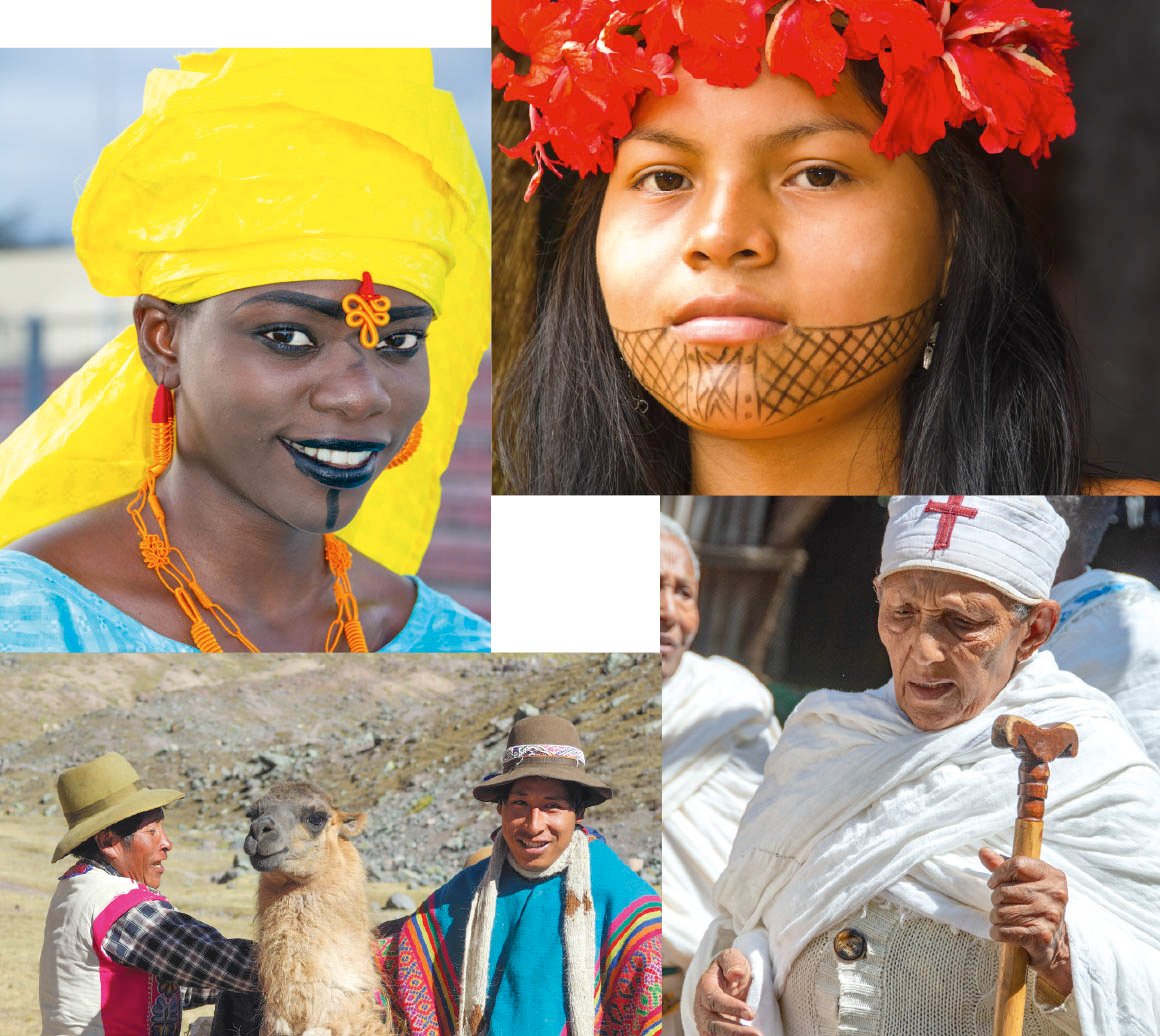
May: Time for Intercultural Dialogue
Text and Photos: Carlos Eduardo Gómez
“I do not want my house to be walled in on all sides and my windows to be stuffed. I want the cultures of all lands to be blown about my house as freely as possible.”
Mahatma Gandhi
In the Universal Declaration on Cultural Diversity, adopted by UNESCO in 2001, Member States commit to recognizing cultural diversity as a component of the common heritage of humanity and promoting a culture of peace and dialogue between cultures. In order to raise awareness of these issues among all people, May 21 was declared World Day for Cultural Diversity for Dialogue and Development. More than a simple confirmation of diversity, the event seeks to genuinely recognize the benefits of cultural pluralism, understood as an ethical and political principle of equal respect for cultural identities and traditions.
In the history of humanity “there has been no single model of society,” says Diana Gómez Correal, PhD in Anthropology and Assistant Professor at the Center for Interdisciplinary Development Studies (CIDER), at Universidad de Los Andes in Bogotá. Diversity is a fact; it exists and it must exist. But it must also be celebrated. Therefore, she affirms, the dialogue between cultures allows us to broaden our ideas and reflect on the different ways in which societies organize themselves in areas such as economics, politics, the environment, territory, daily life, and our relationship to the land and other social groups.
 The UNESCO World Report, published in 2010, states that an investment in cultural diversity and intercultural dialogue promotes processes of mutual receptivity among peoples. Differences, far from being a threat, can complement the actions of the international community. Diversity contributes to the intellectual and moral solidarity of humanity, which fights intolerance, prejudice, and ignorance, helping to cement peace.
The UNESCO World Report, published in 2010, states that an investment in cultural diversity and intercultural dialogue promotes processes of mutual receptivity among peoples. Differences, far from being a threat, can complement the actions of the international community. Diversity contributes to the intellectual and moral solidarity of humanity, which fights intolerance, prejudice, and ignorance, helping to cement peace.
Dialogue in Latin America
According to Diana Gómez, historical cultural dialogue can be characterized by four attitudes. First, the elimination of all differences through the imposition of a lifestyle, as during the Conquest. Second, assimilation, whereby minorities conform to the dominant culture, giving up their cultural richness and identity. The third attitude is multiculturalism, which recognizes the differences between societies, but offers very limited policies. And, finally, interculturalism, which ensures both dialogue between different visions of societies and mutual recognition. This allows minorities to survive over time, free from discrimination, with opportunities to contribute culturally, socially, and economically, from their own perspectives, to the dominant society.
Intercultural dialogue advances at the local level, which is encouraging. A delegation from Asociaciones Israelitas Argentinas, for example, condemned all prejudicial actions against Arabs. This allowed dialogues between Jewish, Muslim, and Catholic communities to advance, discouraging manifestations of extremism and fanaticism.
Dialogues have also taken place between majority societies and indigenous and Afro-descendant communities, thus improving the constitutions of Bolivia, Perú, and Ecuador. Respect for the cosmovisions of indigenous peoples has allowed these countries to recognize the Earth and Nature as subjects with rights, setting an example for the rest of the world.
 In some cases, reforms have conditioned the redistribution of land and other social benefits to a dominant indigenous language. In Colombia, multiethnic and cultural dialogue advances, although with many difficulties. In Perú, Bolivia, Chile, Guatemala, and Panama, intercultural dialogues have led to public health services being cooperatively administered with indigenous peoples, recognizing their methods of prevention, healing practices, and traditional medicines.
In some cases, reforms have conditioned the redistribution of land and other social benefits to a dominant indigenous language. In Colombia, multiethnic and cultural dialogue advances, although with many difficulties. In Perú, Bolivia, Chile, Guatemala, and Panama, intercultural dialogues have led to public health services being cooperatively administered with indigenous peoples, recognizing their methods of prevention, healing practices, and traditional medicines.
The challenge is to convince decision makers, politicians, and local social actors to integrate the principles of cultural diversity and the values of pluralism and multiculturalism into government plans and public policies as an essential dimension of dialogue, sustainable development, the effective exercise of freedom, and the strengthening of social cohesion, peace, and democratic governance. Inter-culturalism involves experiencing other cultures and allowing other cultures and their truths to affect, change, and transform us, shifting not only our answers, but our questions, ideals, and myths. Cultural dialogue is born of reflection in the presence of others and inside ourselves